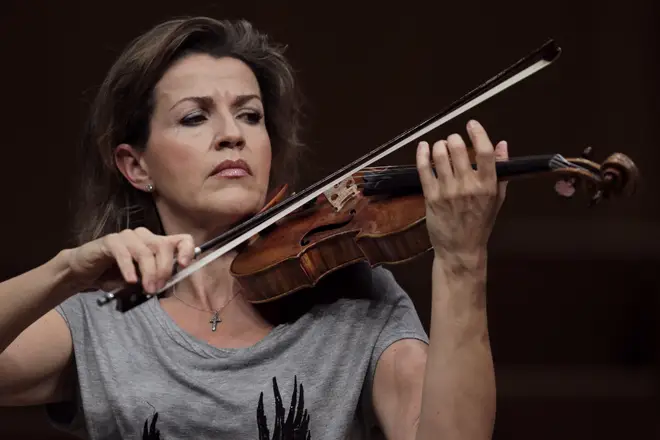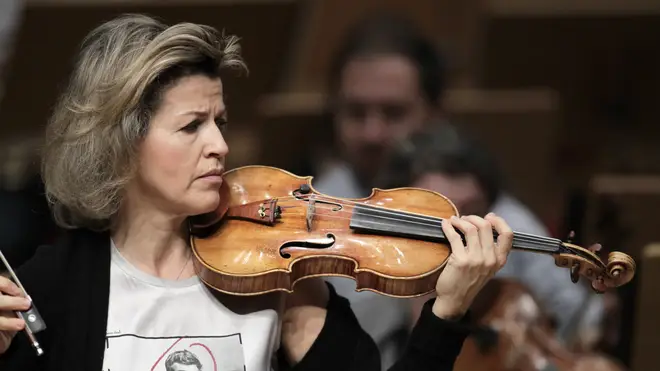On Air Now
Calm Classics with Ritula Shah 10pm - 1am
7 October 2019, 13:36

Violinist Anne-Sophie Mutter has given her first interview since she broke in the middle of a concerto to tell an audience member to stop filming her performance on their phone.
Last week, violin virtuoso Anne-Sophie Mutter paused her performance of Beethoven’s Violin Concerto to call out an audience member who was filming her on their smartphone.
“Either I will leave, or you will put away your phone and recording device,” the German violinist was reported to have said.
She was cheered – in person and later, on social media – for taking a stand against the use of smartphones in concerts. As well as being distracting to performers and patrons, recording in Ohio’s Cincinnati Music Hall – as in many other classical concert venues – is prohibited and could constitute a form of intellectual property theft.
After the woman got up and started talking back to Mutter, she was eventually escorted out of the hall by the president of the Cincinnati Symphony Orchestra. The concert then resumed.
The incident has been widely covered across the media and opened up a wider, and more complicated, discussion about the use of phones and recording devices in concerts. Has our ‘capture-the-moment’ madness gone too far? Or should theatres and concert halls relax their restrictions on audience behaviour, as they look to attract younger audiences?

Mutter has spoken against the use of phones during concerts, noting that unauthorised filming can be illegal. In an interview with the New York Times – her first since the incident – the violinist said after she shot the audience member stern looks, the woman put down her phone.
“The first movement is over, and I’m trying to concentrate and stay calm,” she recalled. “Then she takes out a second phone, and a power bank. I continued the second movement, but it’s already boiling in me. I’m totally out of the flow.
“I feel violated in my rights, of my artistic property. As an artist you take such care when doing a recording – that you have your own sound engineer, that the mics are hung in the right spots. The sound is a part of you, you want your voice replicated in a way that really represents what you have worked on for an entire life.”
After she stopped the performance, Mutter says, the audience supported her and “erupted in long, powerful applause”.
In response to criticism that her reaction could alienate other young people from classical concerts, she countered that younger audience members often seem more concerned with filming concerts than experiencing them.
“The beauty of such an event, a pop concert as well as a classical concert, is really being there, taking it in, having your own personal, really private memory of it.”
Over the last few years, orchestras have toyed with allowing audience members to use their phones in concerts. The Boston Symphony Orchestra have their ‘Casual Fridays’ nights, during which audience members can access notes and images on their phones through an app called ConcertCue.
Similarly, the Royal Philharmonic Orchestra supported a new app in 2017 that delivers programme notes live to your phone, as the orchestra plays. The app, Octava, was specifically aimed towards new and younger audiences.